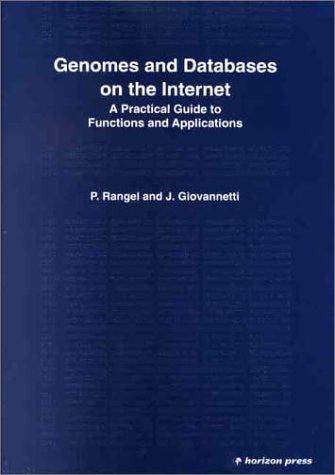Question
In JAVA : scan input file (input1.txt) and return each of the tokens (one at a time). Thank you so much!! Need to *Create a
In JAVA: scan input file (input1.txt) and return each of the tokens (one at a time). Thank you so much!!
Need to *Create a Scanner.java by following descriptions
- There needs to be a constructor:
public Scanner(String sourceFileNm, SymbolTable symbolTable)
-
- sourceFileNm will be the name of the Pickle source code
- symbolTable will be used for all assignments after this one
- Provides access to currentToken which is an instance variable for Scanner.
- Token delimiters
- private final static String delimiters = " \t;:()\'\"=!<>+-*/[]#,^ "; // terminate a token
- What may be different from what you have done before is that the delimiters may also be significant tokens.
- Scanner provides the following methods:
getNext()
- functionally returns a string for the next token
- provides values for currentToken:
- tokenStr
- primClassif - must be able to distinguish
- operator +, -, *, /, <, >, !, = # ^
- separator (, ), :, ;, [, ], an actual comma
- operand
- eof
- subClassif - in Pgm#1, it only distinguishes operands:
- identifier
- string literal (also remove the surrounding quotes)
- integer constant
- float constant
- set tokenStr appropriately
- automatically skips white space (blanks, tabs, ) which isn't within a string literal; therefore, automatically skips blank lines
- a string literal must end on the source text line where it began
- automatically advances to next line of input (and prints that line with its line nr (relative to 1)).
- when EOF is encountered:
- sets the token's primClassif to Classif.EOF.
- getNext() functionally returns ""
_________________________________________________________________________________
*input1.txt
Int x; Float pi; String yStr; x = 11; x = x + 1; pi = 3.14; print ("x=", x); print ("pi=", pi); yStr = 'Hello'; print ("yStr=", yStr); yStr = "Can't"; print ("yStr=", yStr); x = 10*3 + 7; if x > 20: print ("x=", x); yStr = "yes"; else: print ("x is low"); endif; yStr = 'Can\'t wait'; print (yStr); ____________________________________________________________________
*Here are my other classes for this project
1. Pickle.java : code for Pickle.java which is a driver for calling your scanner
package pickle;
public class Pickle
{ public static void main(String[] args)
{ // Create the SymbolTable
SymbolTable symbolTable = new SymbolTable();
try
{
// Print a column heading
System.out.printf("%-11s %-12s %s "
, "primClassif"
, "subClassif"
, "tokenStr");
Scanner scan = new Scanner(args[0], symbolTable);
while (! scan.getNext().isEmpty())
{
scan.currentToken.printToken();
}
}
catch (Exception e)
{
e.printStackTrace();
}
}
}
_______________________________________________________________________
2. Classif.java -enum class with classifications
package pickle;
public enum Classif
{
EMPTY, // empty
OPERAND, // constants, identifier
OPERATOR, // + - * / < > = !
SEPARATOR, // ( ) , : ; [ ]
FUNCTION, // TBD
CONTROL, // TBD
EOF // EOF encountered
}
____________________________________________________________________
3. SubClassif.java - enum class with subclassifications
package pickle;
public enum SubClassif
{
EMPTY, // empty
// OPERAND's subclassifications
IDENTIFIER, // identifier
INTEGER, // integer constant
FLOAT, // float constant
BOOLEAN, // boolean constant
STRING, // string constant
DATE, // date constant
VOID, // void
// CONTROL's subclassifications
FLOW, // flow statement (e.g., if)
END, // end statement (e.g., endif)
DECLARE, // declare statement (e.g., Int)
// FUNCTION's subclassfications
BUILTIN, // builtin function (e.g., print)
USER // user-defined function
}
__________________________________________________________________
4. Token.java : starting file for the Token class. This contains printToken() which prints a token. This class represent a token for the Scanner Class.
package pickle;
import java.util.*;
public class Token
{
public String tokenStr = "";
public Classif primClassif = Classif.EMPTY;
public SubClassif subClassif = SubClassif.EMPTY;
public int iSourceLineNr = 0;
/** Column location in the source file for this token. column positions are
* relative to zero.
*/
public int iColPos = 0;
public Token(String value)
{
this.tokenStr = value;
}
public Token()
{
this(""); // invoke the other constructor
}
/**
* Prints the primary classification, sub-classification, and token string
*
* If the classification is EMPTY, it uses "**garbage**".
* If the sub-classification is EMPTY, it uses "-".
*/
public void printToken()
{
String primClassifStr;
String subClassifStr;
if (primClassif != Classif.EMPTY)
primClassifStr = primClassif.toString();
else
primClassifStr = "**garbage**";
if (subClassif != SubClassif.EMPTY)
subClassifStr = subClassif.toString();
else
subClassifStr = "-";
System.out.printf("%-11s %-12s %s "
, primClassifStr
, subClassifStr
, tokenStr);
}
}
Step by Step Solution
There are 3 Steps involved in it
Step: 1

Get Instant Access to Expert-Tailored Solutions
See step-by-step solutions with expert insights and AI powered tools for academic success
Step: 2

Step: 3

Ace Your Homework with AI
Get the answers you need in no time with our AI-driven, step-by-step assistance
Get Started


